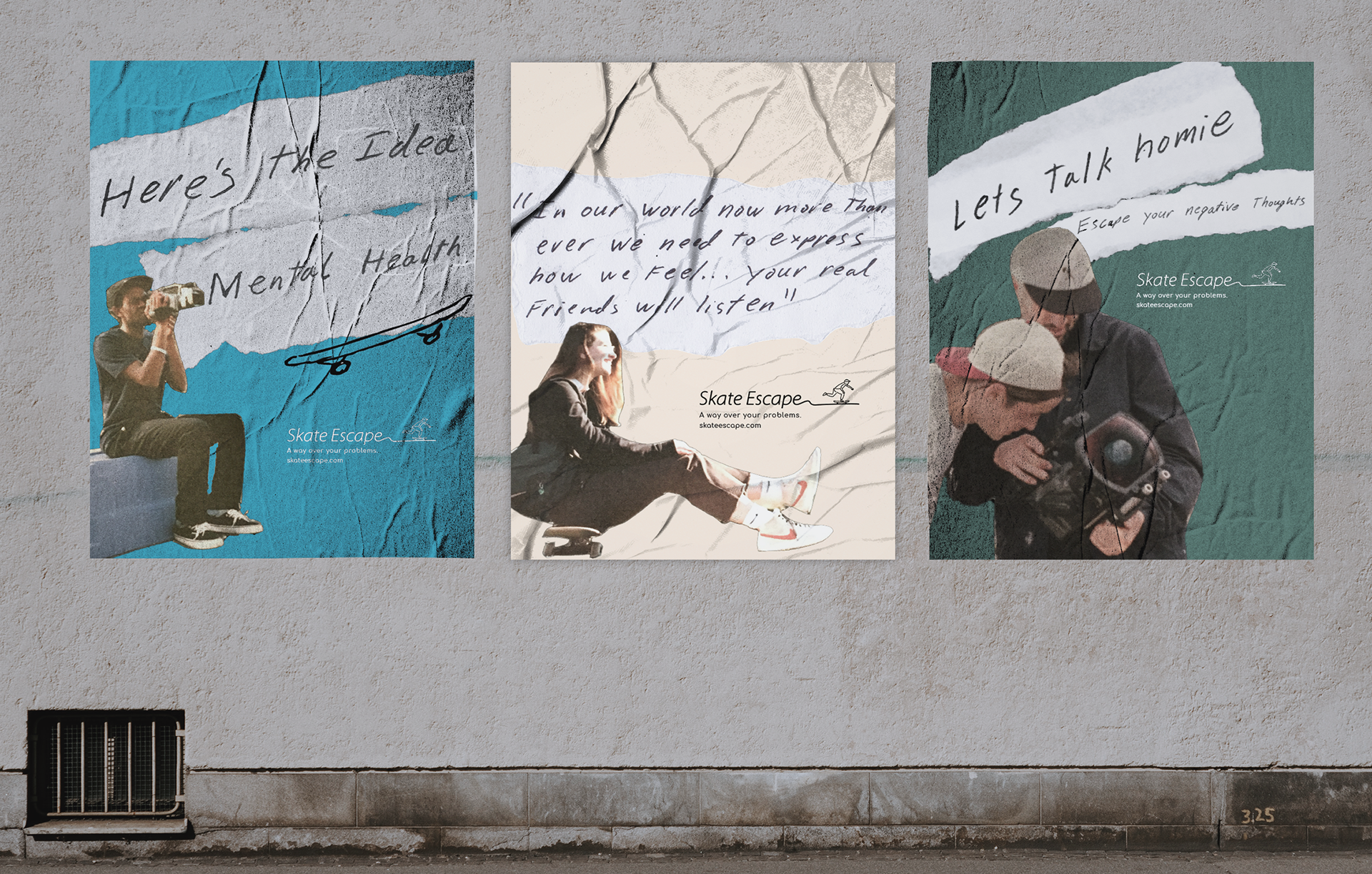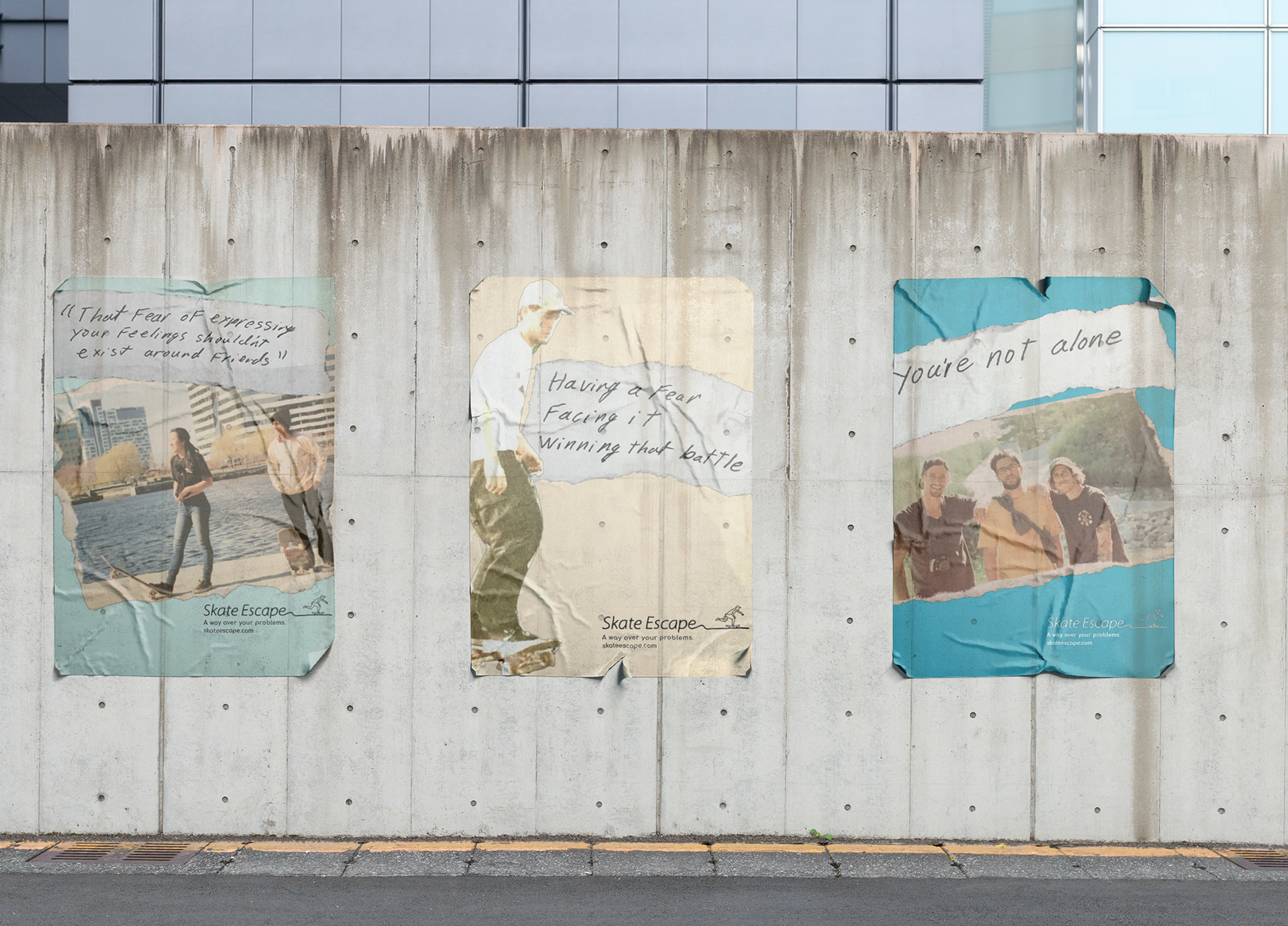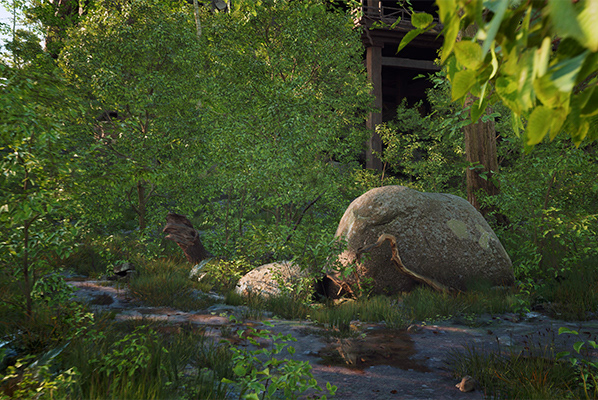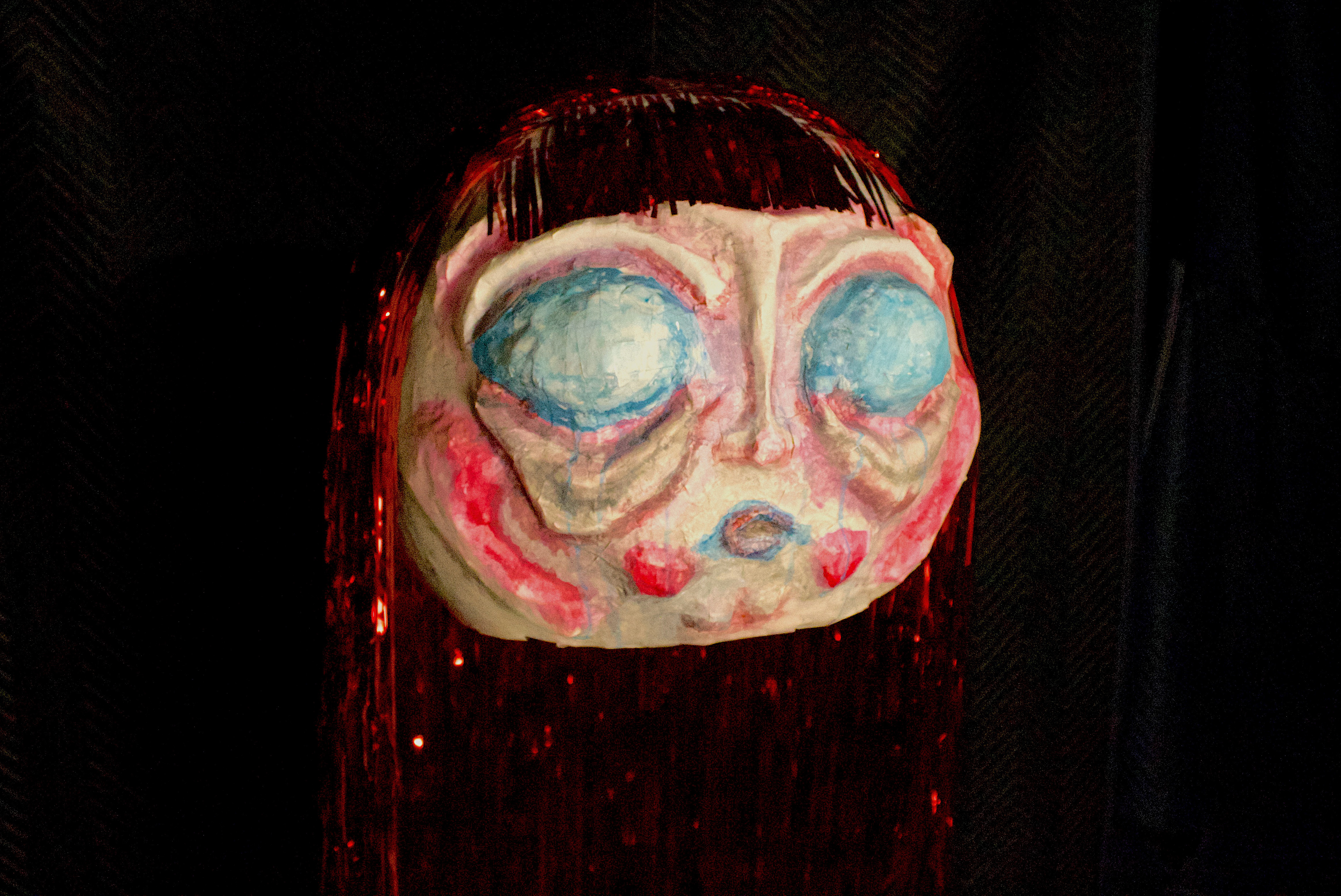Paul Compere
Skate Escape is about inspiring skateboarders dealing with Mental Health issues to learn and feel comfortable with expressing their negative feelings. The commonality of skateboarding acts as a way to break the ice and provides a sense of solace in knowing you're not alone.


Artist/Thesis Statement
Skateboarding has played an important role in my life, providing me with incredible friendships and opportunities. It’s been a joy and a challenge that i’m always happy to take on. With all the great things that have come from skateboarding there is a part of the skateboarding world that hasn't always received as much attention as it should and that is the Mental Health issues a lot of skateboarders deal with everyday yet keep quiet about. Skateboarding has always either been portrayed as reckless and dangerous or cool and exciting and with that comes pre assumptions of what those who skate are like as people. A lot of the times skating has nothing to do with a persons personality and it’s actually just their way of briefly escaping the negativities they face. What some don't realize is that they are not alone in their struggles, though they are all different a lot of us are battling something and keeping it bottle up inside doesn't help.
Skate Escape is about inspiring skateboarders dealing with Mental Health issues to learn and feel comfortable with expressing their negative feelings. It’s a way to break the ice of talking about more serious mental issues using the commonality of skateboarding to ease each person into feeling more comfortable to reach out and talk. Being vulnerable and trusting in their being help and others there with you on the journey towards a healthier mind is key and by trusting others in the skate community we can begin to have these conversations more comfortably and come to find what helps each of us achieve our mental peace. Friendships and real trust are important and with that we can win.













